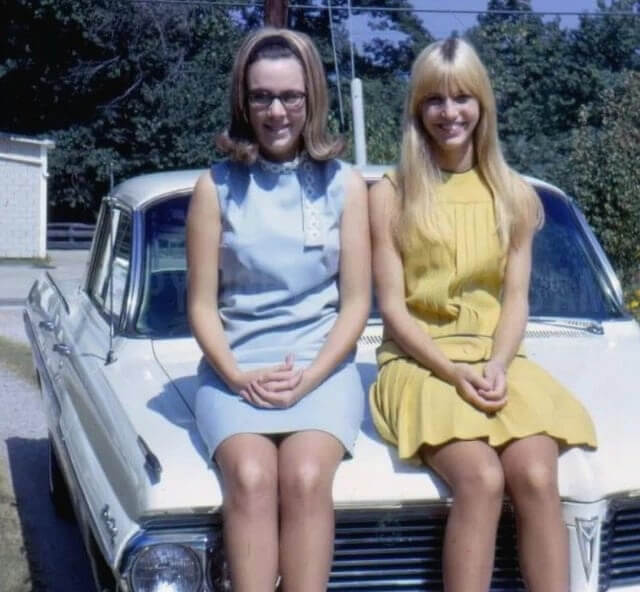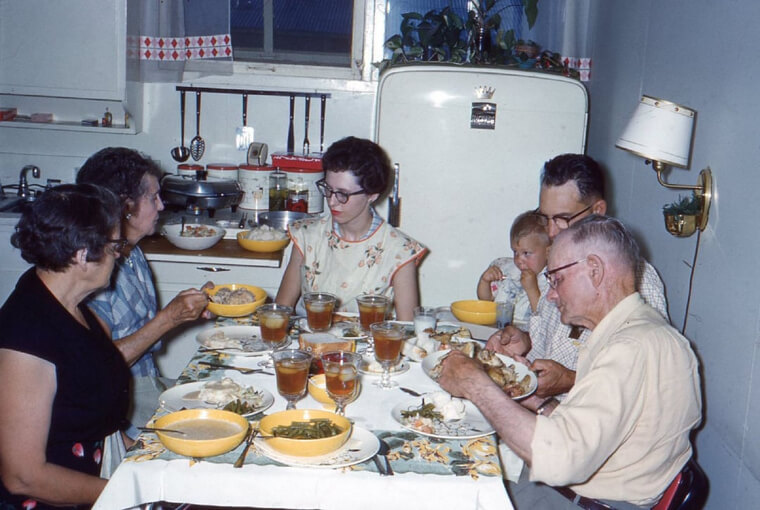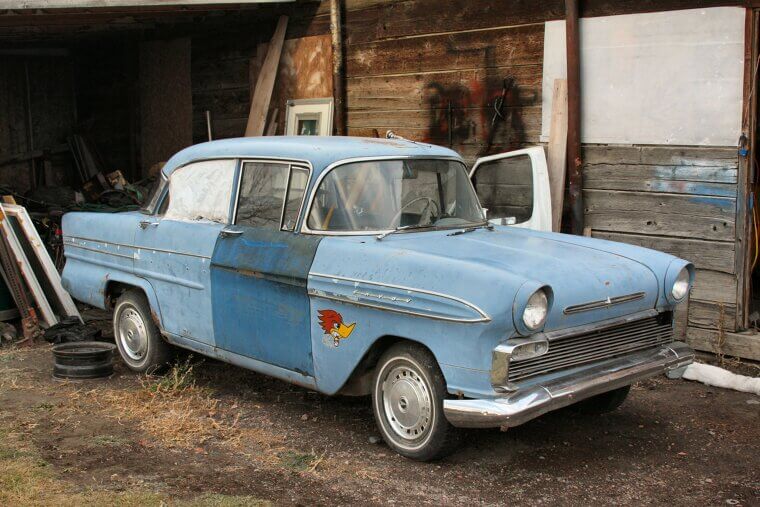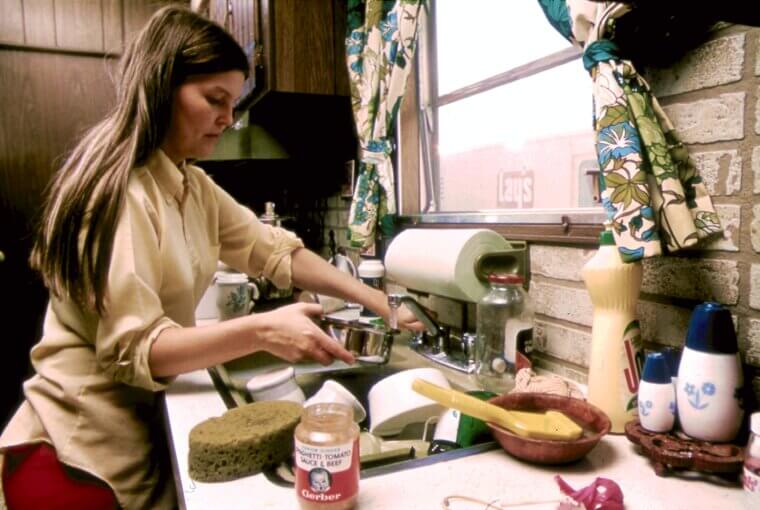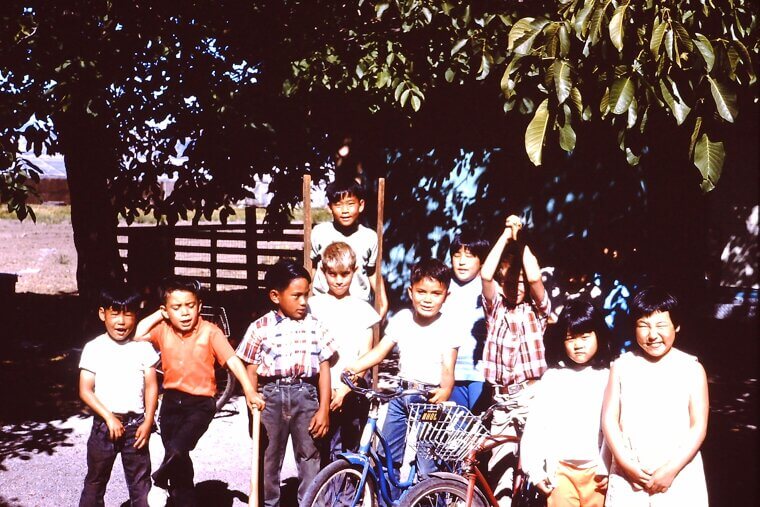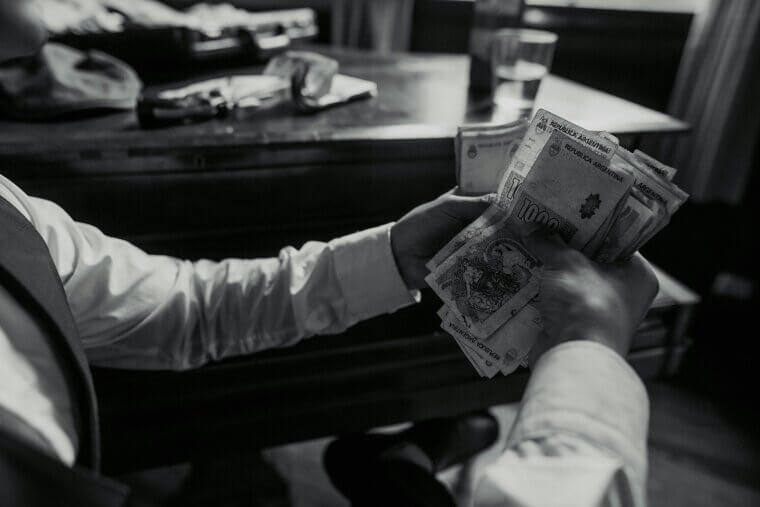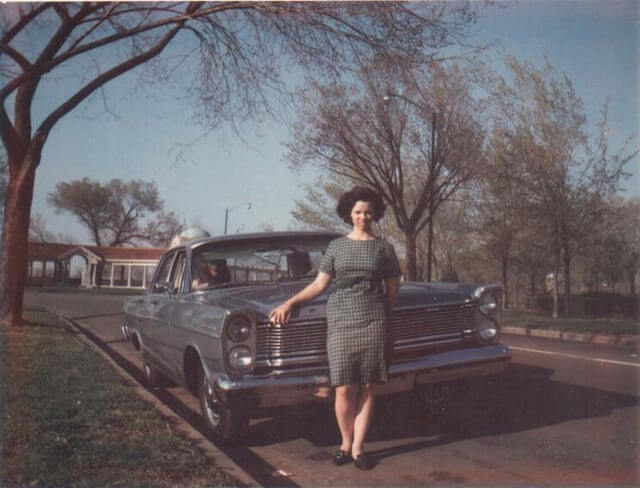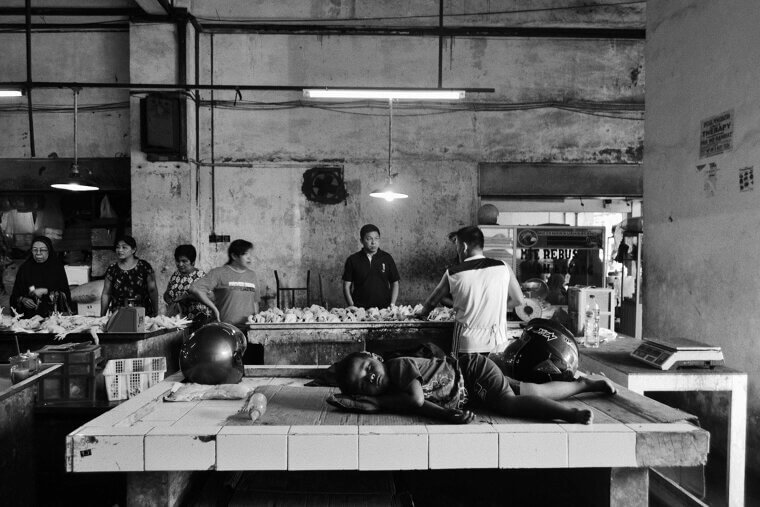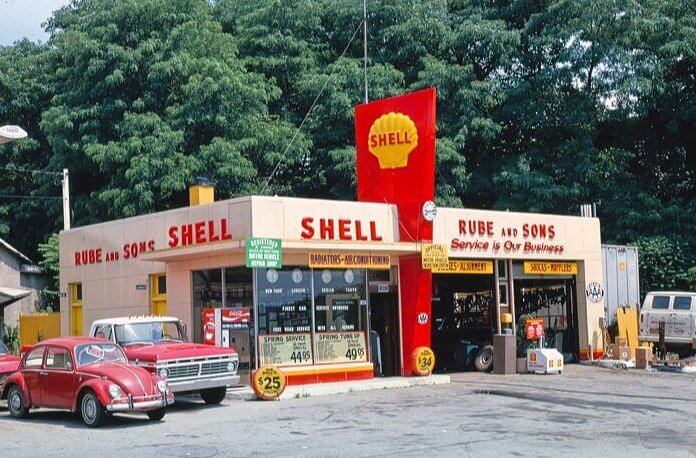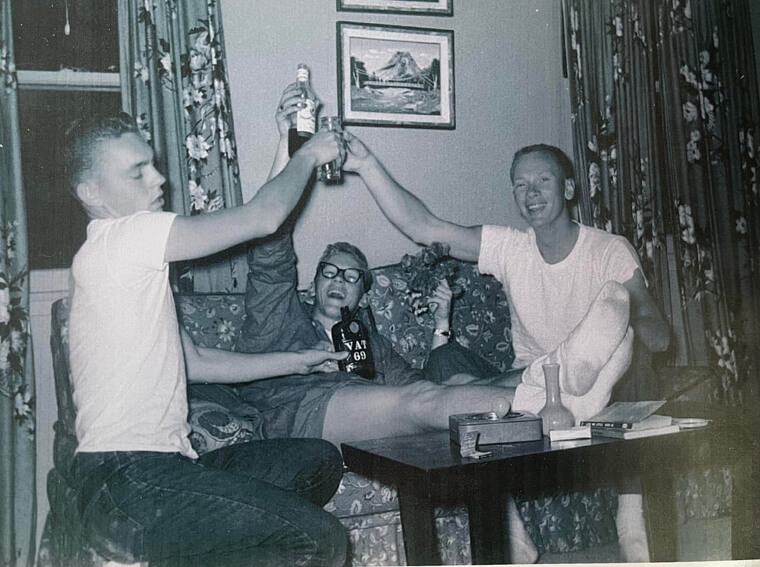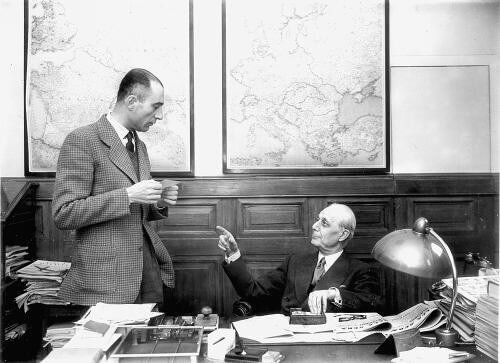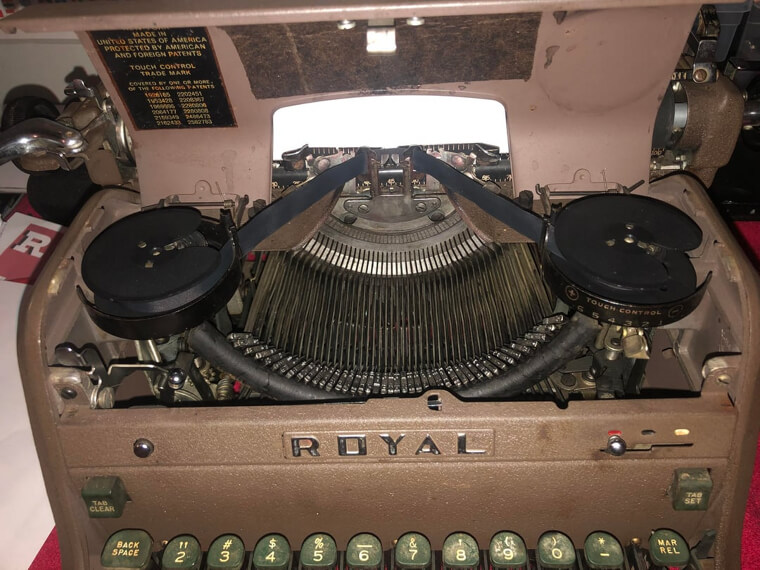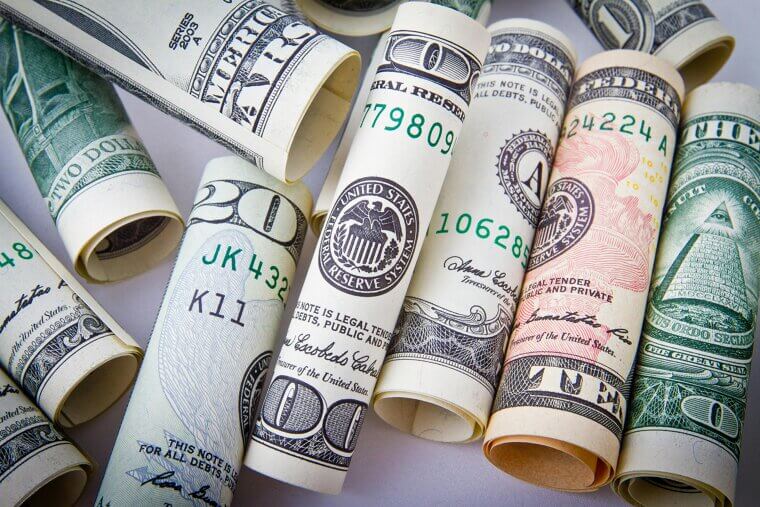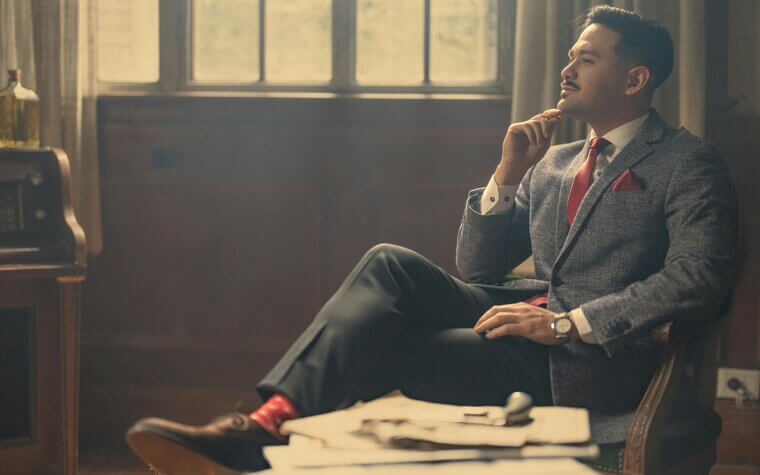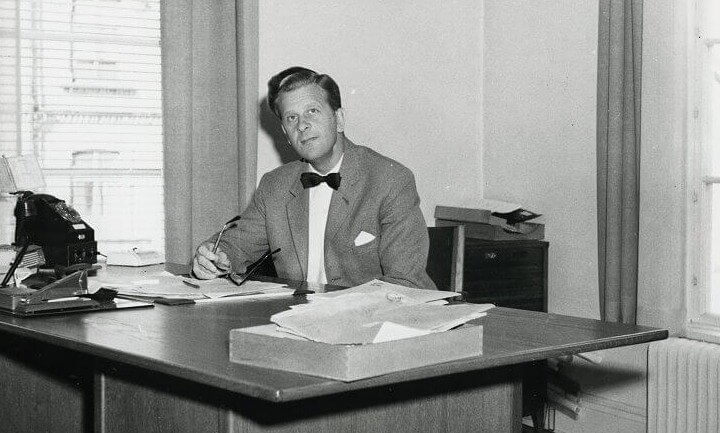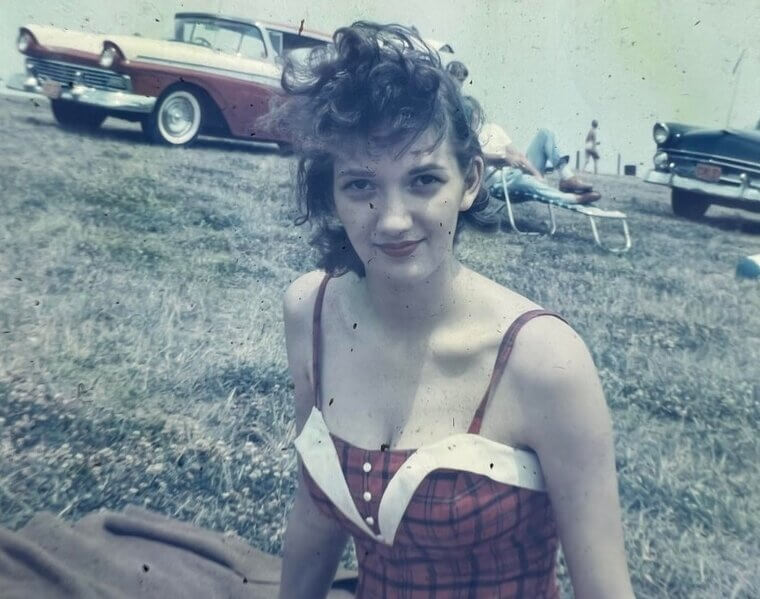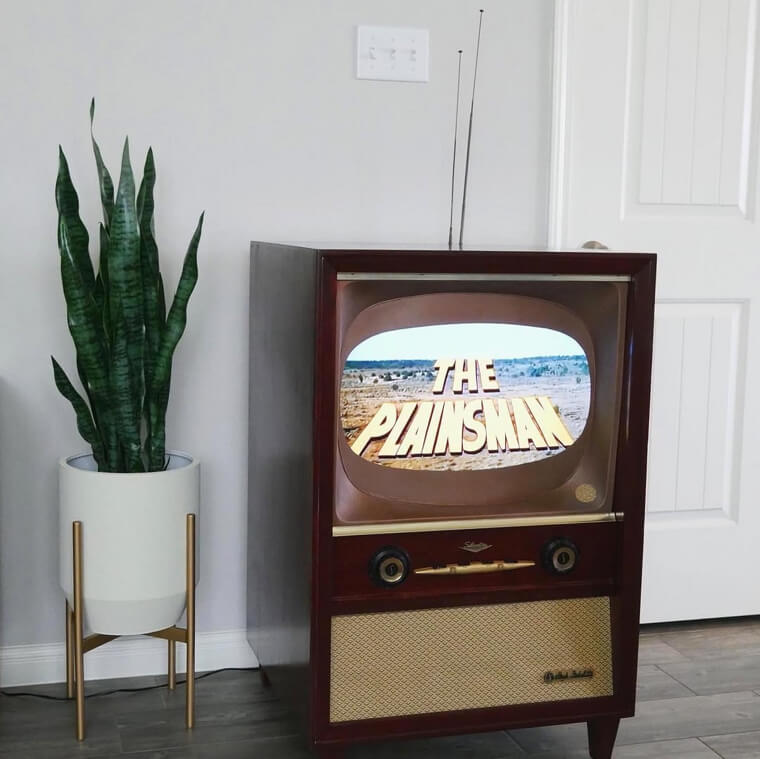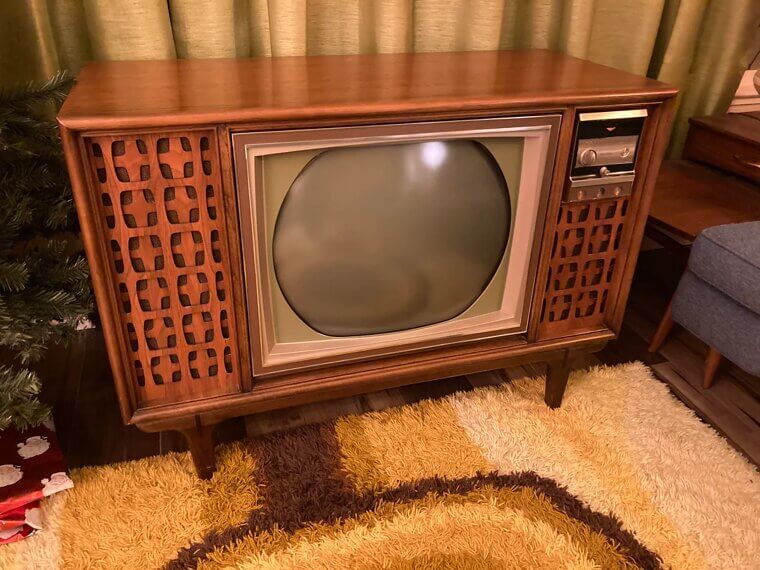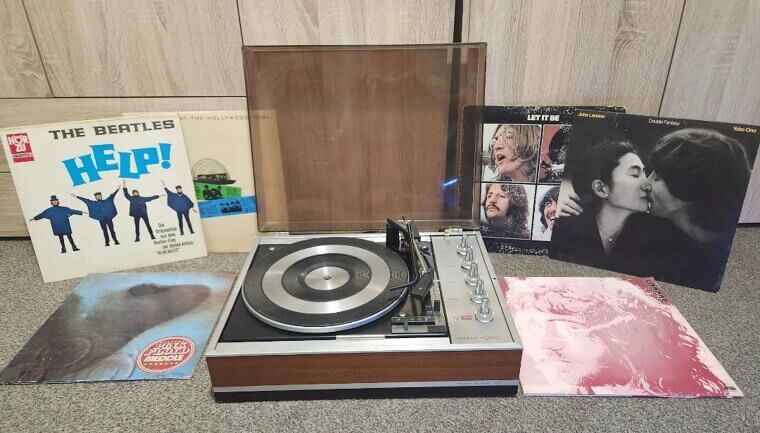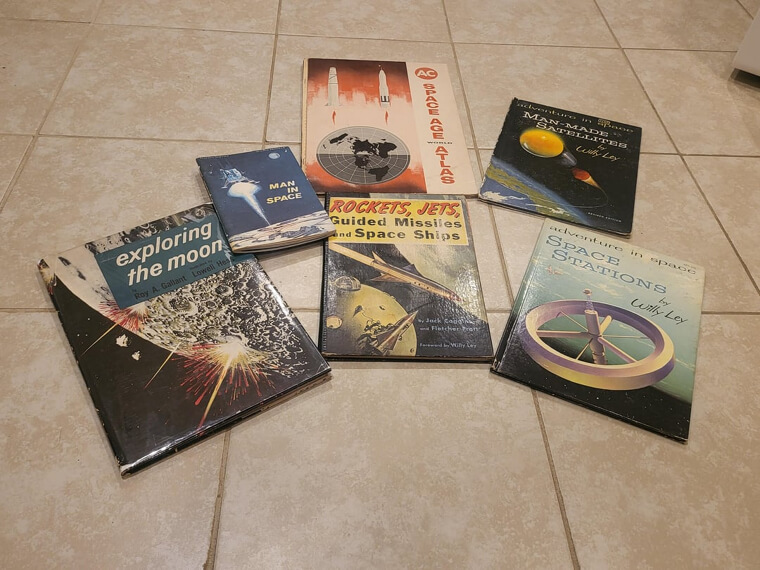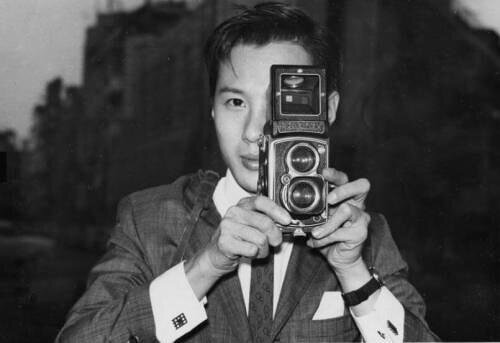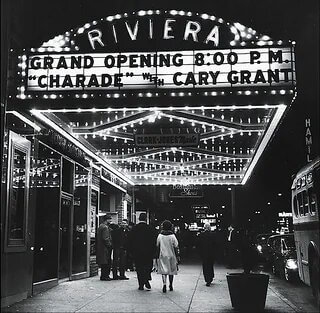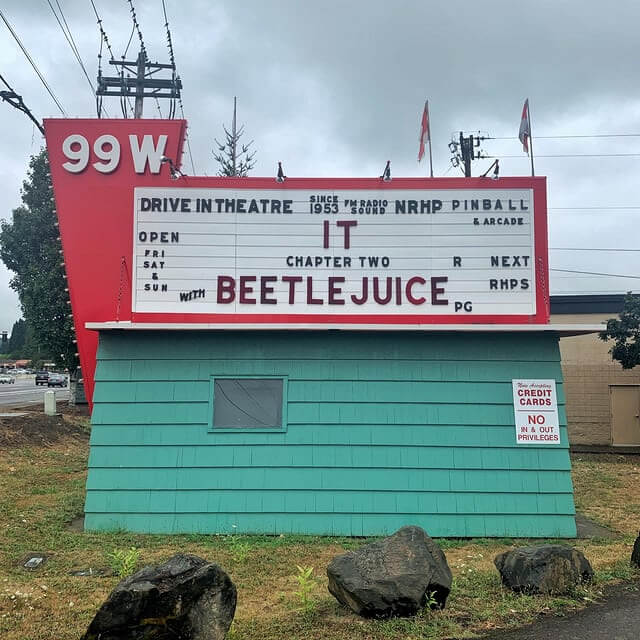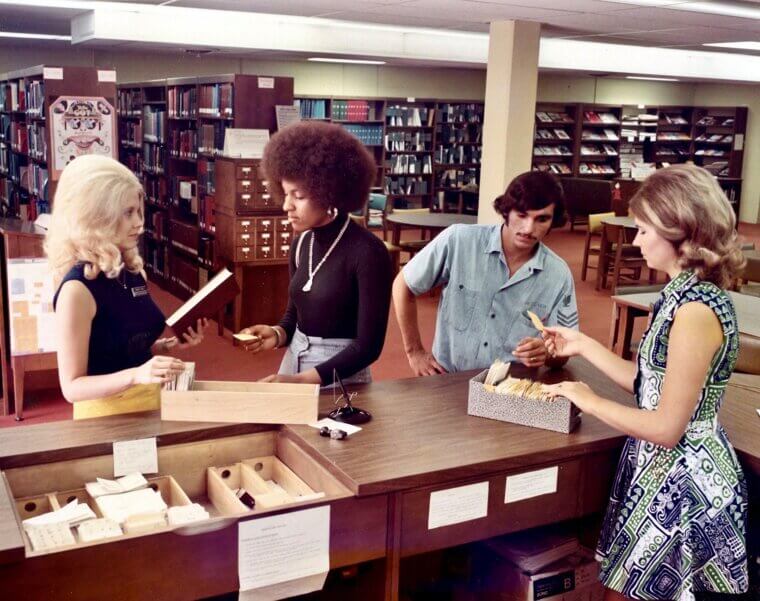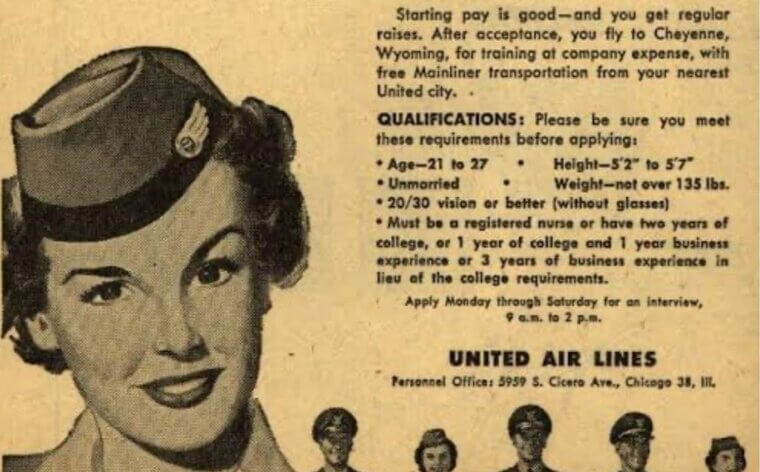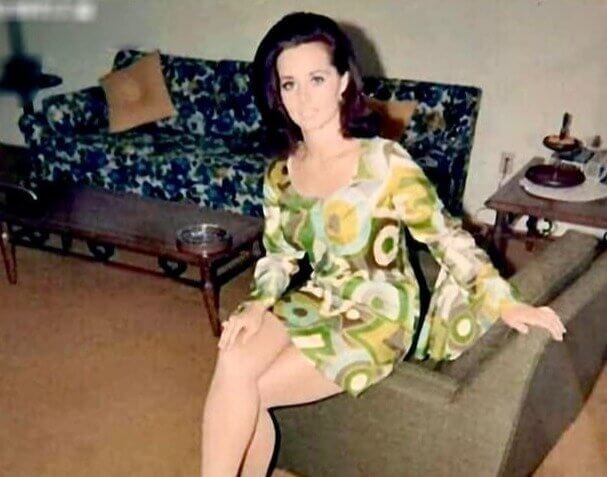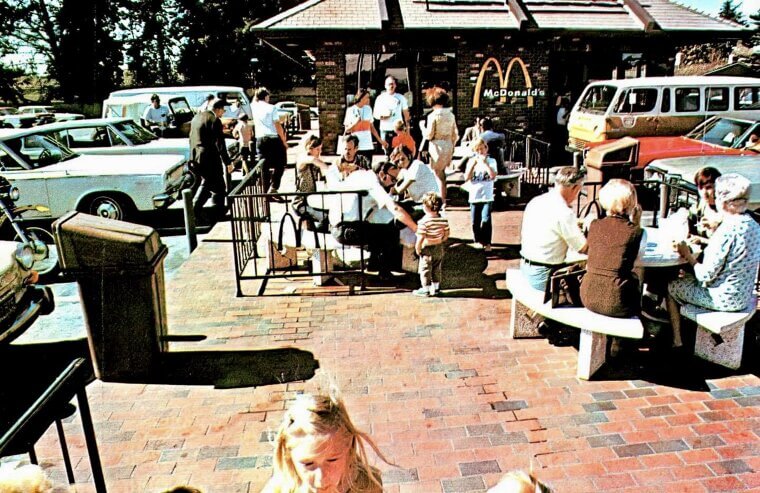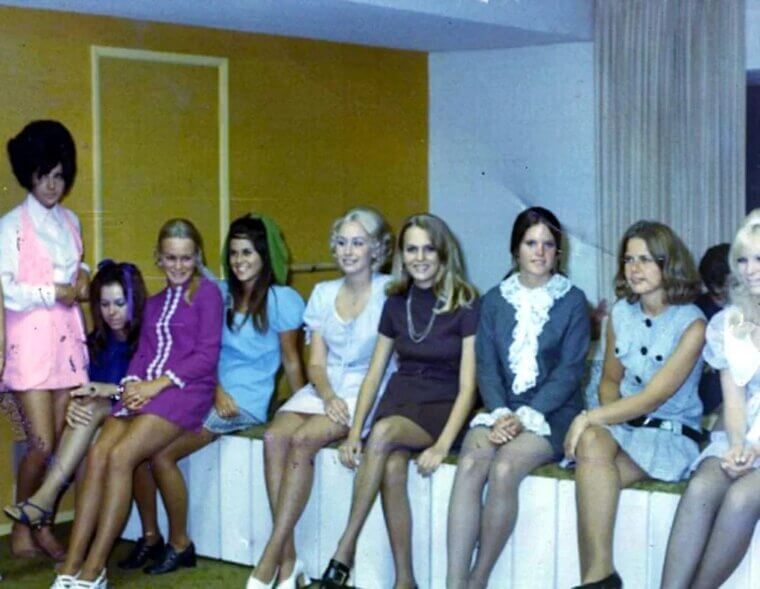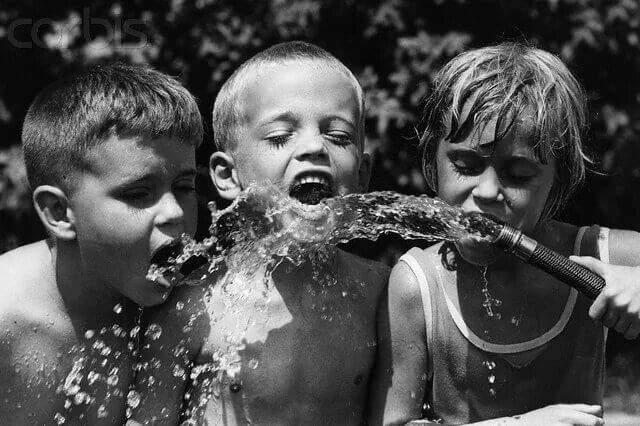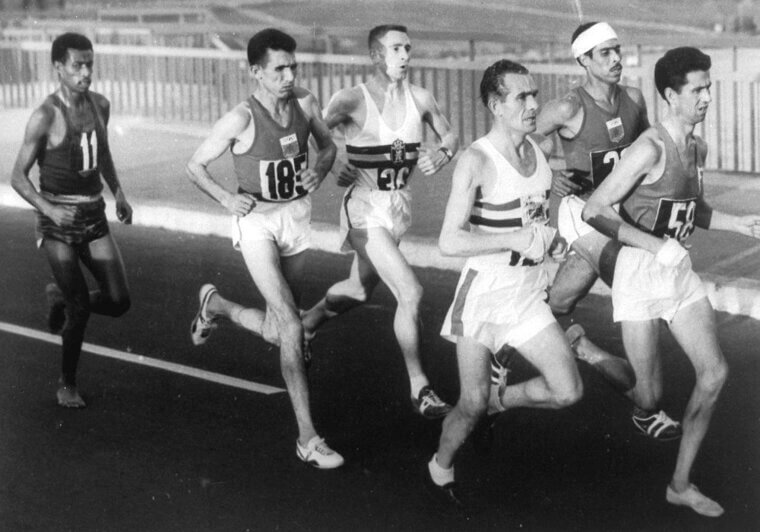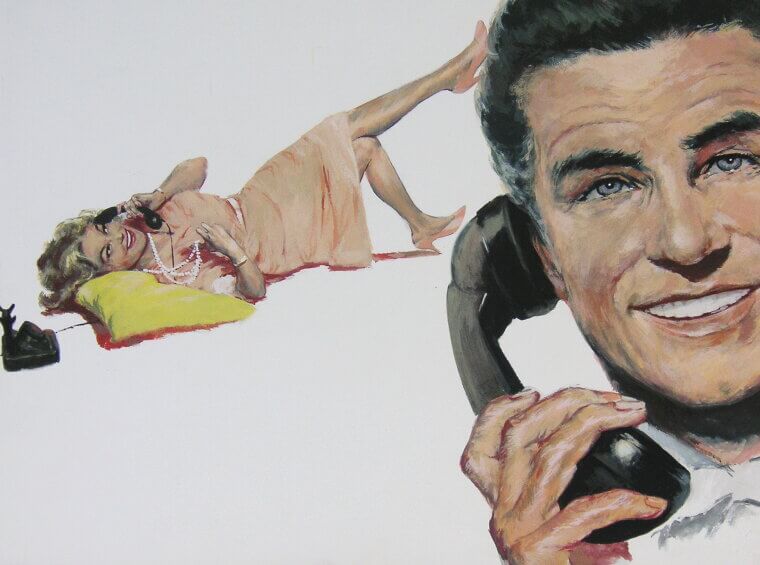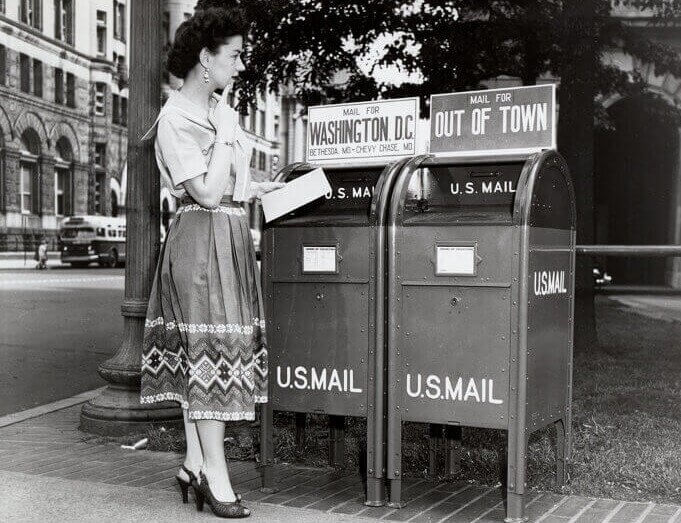Neighbors Actually Knew Each Other
This is going to sound wild, but neighbors used to just drop by. For coffee. Unannounced. They borrowed sugar, knew your kids' names, and were generally up in your business. Today, you (maybe) get a polite wave while speed-walking to your car.
Families Ate Dinner Together Every Night
The entire family sat down together every single evening for a home-cooked meal. No phones, because they were attached to walls. Just some pot roast with overcooked vegetables and actual conversation. Now, one person is on their phone, another has just ordered DoorDash, and the third can’t eat without watching something.
Most Families Owned Just One Car
The driveway situation was simple back in the ‘60s: one big, American-made car that dad took to work. Mom had to get creative with errands, or she just... waited. Which sounds insane now that most households have multiple cars parked outside as if they own a dealership.
Housewives Were the Norm
The housewife thing wasn't just common; it was basically the default setting for American families. Mom stayed home, kept house, and had dinner ready. Today? Both parents work, everyone's exhausted, and we're all just trying to figure out who's picking up the kids and what's for dinner.
Average Home Cost: $12,000
Let that number sink in for a second. Twelve. Thousand. Dollars. For a whole house. Sure, wages were lower too, but still... You could actually buy a house without needing to sell a kidney. Today's average home price hovers around $400,000. Even with inflation factored in, the math is brutal.
Eating habits (rules) were different back then
Eating habits (rules) were different back then
Kids Played Outside Until Dark
Kids in the '60s went outside and stayed there. They'd disappear for hours after breakfast, and you'd see them when the streetlights came on. They had no cell phones, and there was no way to reach them. They were just out there doing kid stuff.
Divorce Was Scandalous
Getting divorced in the 1960s was a Big Deal with capital letters. The "nuclear family" was the ideal, and anything else was considered to be shameful. Anything related to divorce got people talking and the neighbors judging. These days, divorce is normal, with nearly half of all marriages ending in divorce.
Cash had a lot more respect than it does now.
Cash had a lot more respect than it does now.
Cash Was King
Credit cards existed, but weren't exactly common. Most people handed over actual cash or wrote checks at the grocery store while everyone in line behind them aged visibly. Now we tap our phones or wave our cards above a scanner, and money magically gets transferred. What a time to be alive.
"Keeping Up With the Joneses" Was Simpler
The competition was real but manageable. A new car? Sure. A color TV? Doable. That was pretty much the extent of it. Compared to now, where the “Joneses” just got back from an Instagram-worthy vacation and remodeled their kitchen in the space of 30 days.
Let's talk about work. Oh boy, let's talk about work.
Let's talk about work. Oh boy, let's talk about work.
Average Income: $5,600 a Year
Yeah, around $5,600 annually. Sounds impossibly low, right? But things cost less, and weekly paychecks kept money flowing steadily. Today's median household income is over $74,000, which sounds way better until you realize it doesn't go nearly as far. The math doesn't math the same way anymore.
Cost of Gas Less Than 30 Cents Per Gallon
Fill up the tank for pocket change? That was reality. Gas was so cheap you didn't even think about it. You just pulled up and said, "fill 'er up" without checking your wallet. Very different from today, where we're hovering around $3-4 per gallon, depending on which geopolitical drama is unfolding around the globe.
Factory Jobs Were Reliable
Union jobs at factories were solid, respectable work that could support a whole family. You clocked in, did your job, and the paycheck was steady. Job security was a real thing, unlike today, where gig work, automation, and layoffs are the norm.
One job for life. Remember when that was a thing?
One job for life. Remember when that was a thing?
Men Stayed With One Company Forever
Job loyalty wasn't just expected; it was standard. Men would start at a company right out of school and stay until retirement, getting a gold watch and a pension at the end of it for their trouble. That kind of loyalty is extinct now.
Offices Sounded Alive
Office sounds were different back in the day. Typewriters were clicking, rotary phones were ringing, and fax machines were… faxing. Now we have laptops, Slack notifications, and AI tools doing half the work while three coffee machines make coffee in the background.
Pensions Were Standard
Retirement meant a steady check from your employer and perhaps that aforementioned gold watch. The company took care of you. That was the deal. Unlike today, where we've got 401(k)s and the responsibility has shifted entirely to individuals.
The dress code has... evolved (for the worse?)
The dress code has... evolved (for the worse?)
Suits and Ties Were Daily Uniform
Men wore suits and ties to the office every single day. Women wore dresses or skirts. Pants weren't even an option. Everyone looked formal, polished, and perhaps slightly uncomfortable. Today’s business casual killed the suit and tie, and then COVID came along and got rid of what was left.
Everything Was Closed on Sundays
Sundays were for rest, whether you were religious or not. Stores closed, businesses shut down, and you just accepted that shopping wasn’t an option that day. Today, we have 24/7 online shopping, and most stores open on Sundays because capitalism does not care about your sleep.
Commuting Was Part of Work
Remote work wasn't even a concept. Work meant going to an office, sitting at a desk, and being physically present. That was just what work was. Now millions of people work from home or wherever there's Wi-Fi (coffee shops, beaches, if Instagram is to be believed).
Vacation time. Oh, this is good.
Vacation time. Oh, this is good.
People Actually Used Their Two Weeks
Americans these days are notoriously bad at taking vacations. Back in the day, when you got vacation time, you used it. We've turned not taking time off into a weird flex and developed a culture that prioritizes productivity over leisure. It's not impressive. It's just sad.
Three TV Channels, That's It
Families had three channel options. Three. ABC, NBC, CBS. If you didn't like what was on, too bad. Go outside or read a book. Today, we spend 20 minutes scrolling before giving up and rewatching The Office again.
Entertainment has come a long way, folks.
Entertainment has come a long way, folks.
Color TV Was a Financial Indicator
Having a color television meant you were doing well financially. You were THE family on the block. Everyone else was still watching in black and white, and color TV owners knew it. Today, we have 4K OLED smart TVs with streaming apps built in, and if yours isn't at least 55 inches, are you even trying?
Vinyl Records Were It
Music meant physical records: vinyl, 45s, LPs that you actually owned and stored on shelves. You curated a collection, and it took up space in your home. We've gone from having carefully curated record collections to algorithm-generated playlists that somehow know our taste better than we do. Ownership’s so 1960s anyways…
Can’t talk about the ‘60s without talking about space!
Can’t talk about the ‘60s without talking about space!
The Space Race Inspired Everyone
Kids wanted to be astronauts. The Space Race with the Soviet Union was the main thing capturing imaginations, and everything was about moon landings, NASA, and the final frontier. Even though it was government-funded, it felt like a collective achievement.
One Camera Per Family
Photography was precious. And limited. You had one camera, film was expensive, and you got 36 shots before needing a new roll. You had to think about each photo before taking it. It’s a pretty sharp contrast to now, where we capture dozens of pictures in a month.
Movie Theaters Were Not Casual
Going to the movies on Saturday night meant getting dressed up. It was like an event or occasion of sorts, rather than just something to do. You bought your ticket, sat through the whole thing, and that was your entertainment for the week.
You could have a cinema experience in your car!
You could have a cinema experience in your car!
Drive-Ins Were Peak Entertainment
Weekend plans often involved drive-in theaters. Couples made out, families brought snacks, it was a whole vibe. How’d we go from watching movies under the stars to streaming movies from bed, and poor Netflix asking "are you still watching?" for the third time.
Libraries Were Research Central
Need to know something? Go to the library. Actually, no. First, get in your car, drive there, use the card catalog, find books, and THEN you can read them. Libraries were destinations, and that good old paper smell was perhaps the best part of the experience.
Flying Was Glamorous
Air travel was fancy and rare. People dressed up in suits and dresses to fly, meals came on real plates, and legroom existed. It was a nice experience that would get you all giddy and excited. Now, even though flying is routine, it is miserable with everyone cramped into tiny seats.
Health habits were... interesting.
Health habits were... interesting.
Smoking Was Literally Everywhere
Cigarettes weren't just allowed everywhere; they were practically encouraged. Airplanes had ashtrays in the armrests, doctors smoked during appointments, and your teacher probably lit up in the faculty lounge between classes. The "smoking sections" in restaurants were just... the whole restaurant. It was glamorous, sophisticated, and very Mad Men-esque.
Fast Food Was Novel
McDonald's was new and exciting, and even more than that, it was futuristic! Fast, cheap, consistent food? Revolutionary stuff at the time. But today it’s around every block, in every household, and just a very normal part of everyday life.
People Dressed Up for Everything
Flights, church, running errands, people dressed up for all of it. Appearances mattered; first impressions were, in fact, the last impressions, and sweatpants in public would've gotten you some looks. Very different from today’s athleisure, Crocs on airplanes, and pajama pants at the grocery store situation.
Childhood was basically unsupervised.
Childhood was basically unsupervised.
Kids Were Less ‘Babied’
Thirsty? Drink from the hose. Hurt? Walk it off. Kids rode bikes without helmets, played until dark, and generally survived through luck, grit, and some of that guardian angel magic. Today’s helicopter parents would lose it.
Exercise Was for Athletes
Gyms weren't really a thing for regular people back in the day. Athletes trained, everyone else just... lived. You didn't track steps or obsess over fitness because an adequate amount of physical activity was happening naturally through daily life.
Long-Distance Calls Were Special
Calling someone in another state cost serious money back then, so you had to plan it. You watched the clock, kept conversations short, and it felt like an event. Very different from now, where we just whip out a rectangular screen from our pockets and video call people across the world for free while grocery shopping.
Mail Took Days
Letters took days to arrive, and that was just how it was. You wrote something, mailed it, and waited. Patience was mandatory, compared to today, where we've gained speed but completely lost the ability to wait for anything. Also lost: the excuse "sorry, I never got your letter" for avoiding basically anything.

